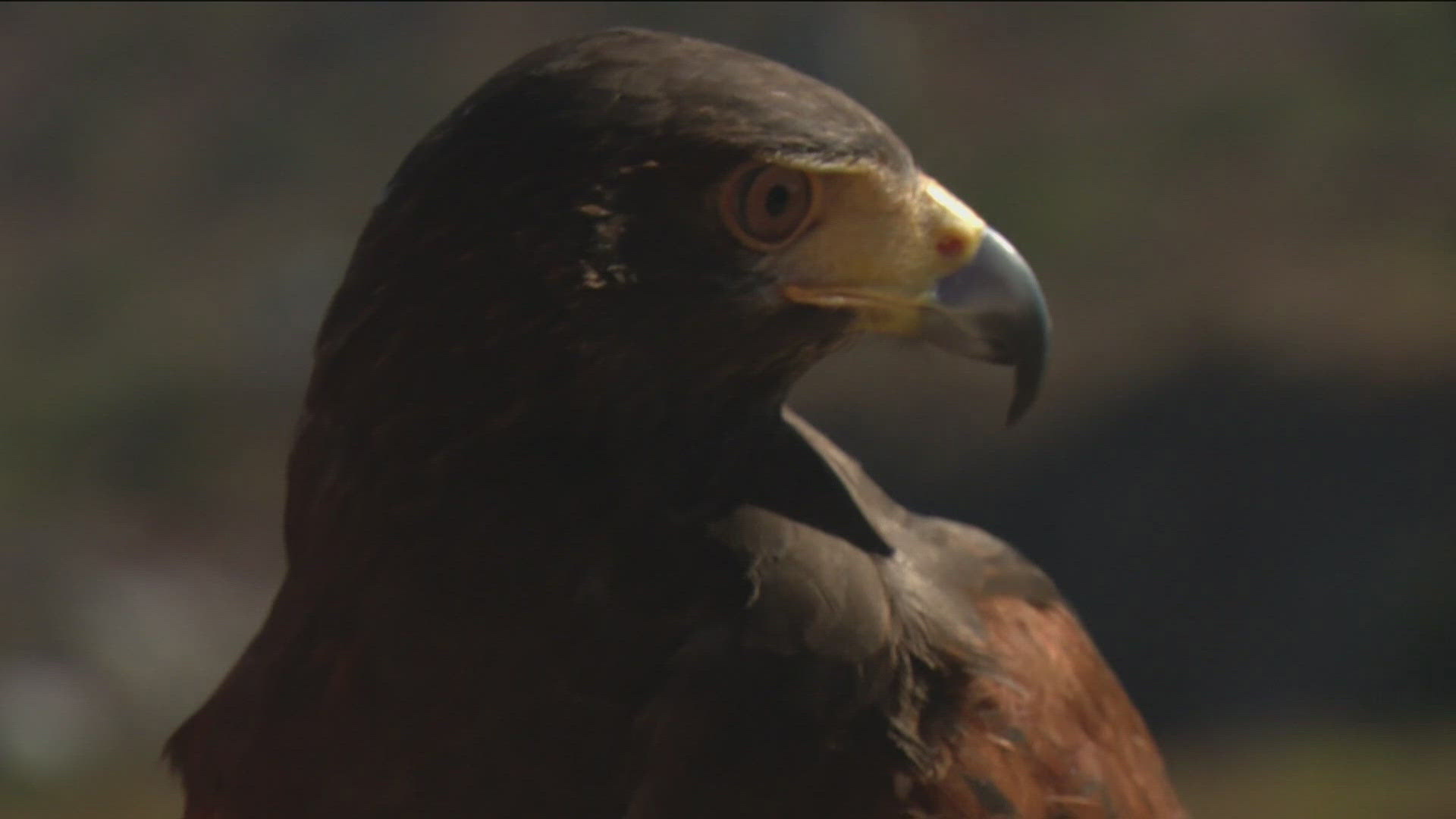SAN DIEGO — A name change is coming to dozens of species of well-known birds this year — all in a push by the American Ornithological Society to remove human names and swap them with more useful, description-based replacements. Get ready to say goodbye to the Anna's Hummingbird, Cooper's Hawk, and Steller’s Jay among dozens of others.
CBS 8 met with Dr. Bob Gordon, a retired physician and master falconer in support of the new names. He and his Harris’s Hawk, Hawkeye met us at Mission Trails Regional Park. The Harris’s Hawk is one of those due for a name change.
"I think it's a great idea," Gordon said. "We progress when you realize that names were made by European males and excluded many of the women who had the scientific discoveries. Also, a lot of the non-whites. I think it’s better to get more people involved and feel more inclusive with regards to Ornithology."
Many of these birds named after humans were given their names based on the person who in North America discovered them first – though even that is contested by many. Since these names give little context as to what sets the bird apart from a different species, it’s led experts to ask why these birds weren’t given adjective-based names from the start.
“There is power in a name, and some English bird names have associations with the past that continue to be exclusionary and harmful today,” said Colleen Handel, President of the American Ornithological Society. “We need a much more inclusive and engaging scientific process that focuses attention on the unique features and beauty of the birds themselves. Everyone who loves and cares about birds should be able to enjoy and study them freely—and birds need our help now more than ever.”
The change will come to around 70 to 80 species to start with, some having already taken place. Among them: the removal of a Confederate leader, and another removing an offensive term for Native Americans.
“As scientists, we work to eliminate bias in science. But there has been historic bias in how birds are named, and who might have a bird named in their honor,” said Judith Scarl, Executive Director and CEO of the American Ornithological Society. “Exclusionary naming conventions developed in the 1800s, clouded by racism and misogyny, don’t work for us today, and the time has come for us to transform this process and redirect the focus to the birds, where it belongs. I am proud to be part of this new vision and am excited to work in partnership with a broad array of experts and bird lovers in creating an inclusive naming structure.”
But from bird watchers to master falconers, most of the people that we talked with say they’re open to the change. Bob told us he could care less about the names, and cares more about how these birds invite us to be part of nature and in his case, witness it up close. He’s seen and accomplished a lot in his career in medicine but says this is something different.
"I feel as privileged as I did then to have this bird trust me doing what we’re doing," Gordon added. "Science learns. There’s nothing wrong with admitting you’re wrong. That’s why I love science. When something better comes along you move on."
For more on the name change, you can visit the website of the American Ornithological Society and their English Common Names Pilot Project.
WATCH RELATED: The Tijuana Estuary is home to many species of marine life, birds and plants

